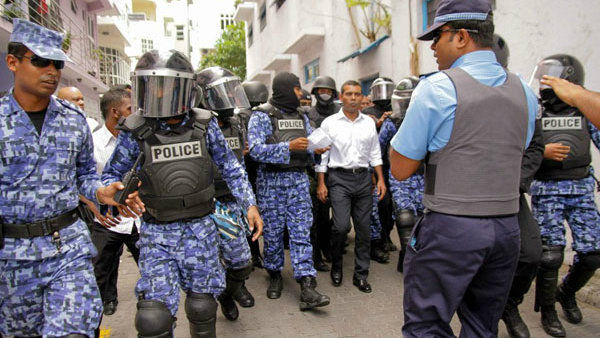A Political Trial or the Trial of a Politician?
The case of the former President Mohamed Naseed is in danger of being manipulated for purely political ends. It is therefore important that we remind ourselves of the facts so that judgment does not become clouded, writes Toby Cadman, partner at Omnia Strategy.

17 Sep 2015, 09:00
The following op-ed is by Toby Cadman, a partner at London-based Omnia Strategy, employed by the Maldivian government to respond to the UN working group on arbitrary detention over former President Mohamed Nasheed’s imprisonment.
On 13 March 2015 former President Mohamed Nasheed was convicted of having ordered the army to arrest a sitting judge. The judge was detained in a military establishment for a prolonged period without access to a lawyer or his family. Such an act should, and did, cause outrage amongst the international legal community. That part of the story is without controversy. However, what followed, namely the trial, and more recently, the appeal, has generated significant criticism resulting in calls, quite inappropriately, from the former President’s international legal team, for sanctions.
It is not the intention of this comment to criticise the international community for engaging in the process and requiring that a State comply with its international obligations. What is at issue, however, is the suggestion that democracy in Maldives rests on this single matter.
The rule of law, a central pillar of any democratic state, is based on a number of fundamental principles. It is based on the notion that all are equal before the law. It is based on the principle of the separation of powers. It is based on ensuring justice and accountability and ending impunity.
Become a member
Get full access to our archive and personalise your experience.
Already a member?
Discussion
No comments yet. Be the first to share your thoughts!
No comments yet. Be the first to join the conversation!
Join the Conversation
Sign in to share your thoughts under an alias and take part in the discussion. Independent journalism thrives on open, respectful debate — your voice matters.




